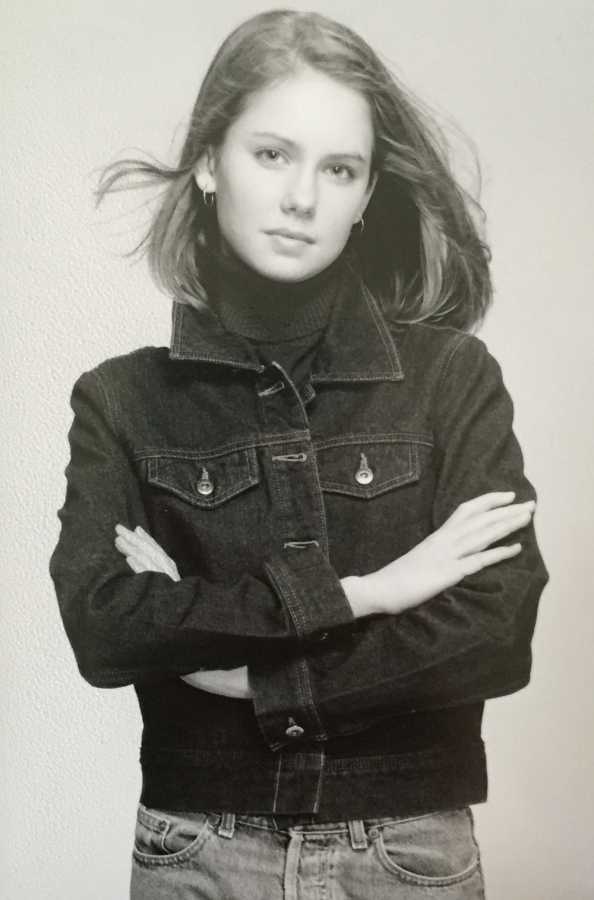I used to have dreams of grandeur.
And when I say "dreams of grandeur," I'm talking a two-decade-long love affair with stardom.
It all started when I was a wee lass of 5 or 6 and got to be on a seesaw with a big red bow in the Neiman Marcus Children's Christmas catalog. From there, I skyrocketed to elementary-school fame playing (and by playing I mean silently miming) Paul Revere as my grade recited Paul Revere's Ride. Then came the break-out role: I was cast as "girl" — but not "the Girl" — in The Girl Who Drew Cats and Other Tales From Japan at the ... drum roll please ... Dallas Children's Theater Center.
You may think I'm kidding, but I was 100% certain fame was my destiny. One day, I knew I would be in public and someone would see the raw, undeveloped talent in me. They would sign me on the spot and I would soon be starring in films.
This is not an exaggeration. I wholeheartedly believed every word I wrote above. If you doubt me, doubt no more; the proof is in the portfolio:
I'm going to state the obvious: my raw talent was never discovered. I never made it to the big — or even the little — screen.
Not long ago, I would have been unable to share this information publicly, let alone in a lighthearted manner.
But something has changed.
I started spending time on a small corner with the "least likely to be known or discovered": the homeless. I started to see that all along I had been made for this.
I was not indeed made for the stage; I was made for lots of love for people whom others had forgotten. Which meant I left what little limelight I had for the shadows. I left the "glory" of a big job in the music and entertainment business — rubbing shoulders with the famous of this world — for the truest, deepest glory of God in each man and woman I encounter on the streets.
This is what I was made for. This is what I had all my life been seeking.
And this sort of life calls to all of us — though few of you will find it on street corners with people who are homeless. What we need is not more people on our street corner (though we welcome anyone who comes) — but people on their own "corner," living in their own place of simple love.




